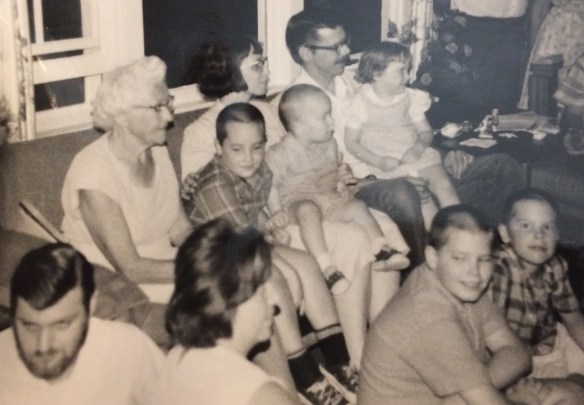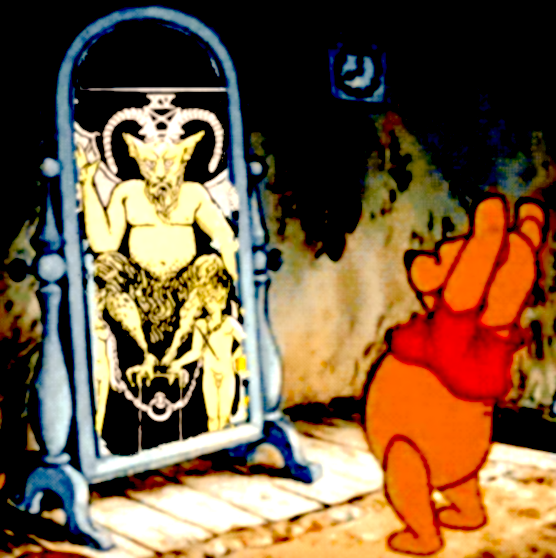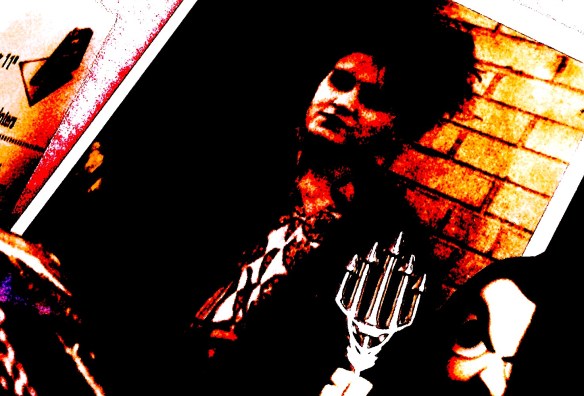by
JC Schildbach, LMHC
It was a great year for crisis lines at the Oscars—or, rather, for films involving crisis lines. Not only did the documentary, Crisis Line: Veterans Press 1 take home a statue, but so did the short, live-action film The Phone Call. And, while Crisis Line: Veterans Press 1 tried (perhaps a little too enthusiastically) to convey a sense of the actual drama that can occur at a crisis line, The Phone Call comes across as a disturbingly simplistic endorsement of suicide-on-demand and irresponsible behavior by crisis line workers, all while portraying a dangerously inaccurate view of the function of crisis lines.
I will begin with the same bit of disclosure I placed at the beginning of my piece on Crisis Line: Veterans Press 1: Having spent more than five years working full-time for a crisis line, and continuing to work in a position sideways from, and occasionally overlapping with, such work, I can’t help but come to these films with something of a bias. And I will also offer up a spoiler alert for The Phone Call: if you haven’t seen it, and you don’t want to know exactly what happens, stop reading now.
The Phone Call seems to have generated most of its praise based on the acting of Sally Hawkins (as Heather) and Jim Broadbent (as Stanley/John)—which is undoubtedly solid, even given the ludicrous material. But most reactions seem to ignore any other critical angle—like the crass manipulations taking place in order to make The Phone Call happen at all.
To begin with, the call center where the story takes place seems to be lost in time. Despite the opening shot of the movie panning by a sign that reads “City WiFi Zone,” the crisis center apparently has no computers and no Internet hookup.
Now, I don’t know the current state of crisis line call centers in the UK, or really the state of any such call centers aside from the ones I’ve worked in, visited, or seen in documentaries—all in the United States. But I will say that if a call center in this day and age equips workers only with a pad of paper, a pen, a phone, and a lamp—they are verging on worker abuse. Absent the most dire of funding situations, failing to provide crisis line workers with computers and Internet access is simply unacceptable, given the relatively low cost of such amenities—and the necessity of such items in making it possible for workers to track down lifesaving information—or even to assist callers who are simply trying to access other services.
At one point in the movie, we see Sally Hawkins’ character, Heather, get up from her desk—thankfully she sat at the front of the room near the bookshelves—to try and look up the “mystery caller” in the notebooks where past call records are kept—handwritten on paper.
Add to that the script manipulation of having absolutely minimal staffing. Despite there being numerous desks in the call center, when Heather arrives, there is only one other worker there–Daniel. At the only time Heather even considers enlisting Daniel’s help with Stanley/John, Daniel is talking with another caller, back turned to Heather, and flipping through a phone book, or some other reference material. She immediately (and completely irresponsibly) determines she can’t get Daniel’s attention—as if muting her phone and calling across the room would have been too much trouble to stop somebody from dying.

‘Would you look at that? Daniel’s busy. Guess you really are going to die today, Stanley.’
Stanley/John is also supposed to be a sympathetic character, the main reason being that his wife, Joan, died two years ago after a long struggle with cancer. As Heather questions Stanley/John about other family members he may have, we also find out that he and Joan tried to start a family, but had only one stillborn child, 25 years ago, and then were unable to have any children after that. Certainly, it’s a sad tale. Certainly, we can understand Stanley/John’s despair.
But just imagine being in the same situation as Heather—or really any crisis line worker—being treated the way Stanley/John is treating her. Stanley/John has decided he is going to die, and has decided that whatever random worker answers the phone is going to have to listen as it happens.
John/Stanley sobs, makes vague statements indicating he has taken actions to kill himself, and refuses to provide information under threat that he will hang up to prevent anyone from tracing the call and sending an ambulance. The audience has to accept that either the call center does not utilize caller id—further putting workers in a terrible situation—or that John/Stanley blocked his information, in order for the whole ‘hanging up’ thing to really work as a threat.
Stanley/John eventually reveals that he’s taken “Antidepressants” that he got “from the doctor.” But killing oneself with pills tends to be a lot trickier than most people realize—at least to do it in the calm, and apparently quick way that Stanley/John manages, all while allowing for a conversation and a quick death before the ambulance crew can arrive and try to revive him—and without his body doing its damnedest to try and expel the deadly pills he’s ingested. Then again, perhaps Heather waited a good long while before calling for the ambulance, as she was looking through notebook after notebook to find the right person named John who lived around the corner from the Boston.
The big moment of connection for Heather, where she (mostly) accepts Stanley/John’s decision to die, is when Stanley/John asks in a pressured tone, “Can you just stay there and talk to me? Are you allowed to do that? Can’t you just stay there and talk to me and hold my hand? Isn’t that alright?”
Heather’s answer: “Of course, I can. I’m not going anywhere.”
There are an infinite number of much better answers Heather could have given at that time. For instance: “No, that’s not allowed, Stanley/John. I’m not here to make you feel better about killing yourself. And, to be honest, if I was really doing my job, my co-worker, Daniel, here would know everything that was going on, and probably already have an ambulance heading your way.”
Instead, in the course of the short conversation, Heather passes up numerous chances to make more than just a conversational connection with Stanley/John. For instance, Heather and Stanley/John discuss jazz, including Stanley/John telling Heather he could teach her how to play tenor saxophone properly. Yet, rather than latch onto that, and suggest that Stanley/John maybe teach music, or otherwise get back into music, Heather doesn’t push on that point of Stanley/John’s ambivalence at all.
In fact, beyond asking about immediate family, Heather does nothing to find out if Stanley/John was involved in anything else in his entire life beyond his relationship with Joan. Work? Friends? Family? Hobbies? Pets?
Heather also does nothing to explore what Stanley/John has done to deal with his grief over the loss of his wife. All we know is that he got antidepressant pills from his doctor. Apparently, Heather takes this as evidence that Stanley/John really has made a valiant effort to deal with the kinds of normal struggles anybody feels at the loss of a long-time companion. ‘Oh? You got a prescription? Wow—that was very brave of you. I’m sorry you still ended up feeling something.’
And perhaps the most obvious thing Heather leaves out is asking how Stanley/John’s wife, Joan, might react to Stanley/John’s decision to kill himself. Or maybe we are meant to accept that Joan is the kind of person who would want her husband to die—that she’s something of a monster, and Stanley/John is really stressed out because he’s two years late on following through with their suicide pact.
Throughout the conversation, Heather lets Stanley/John bully her into not talking about the things she should be talking about, all with the threat that he’ll hang up, and the assertion of his ‘needs’—how he just can’t go on without Joan, but really needs someone to ‘hold his hand’ at the end.
We are supposed to find it comforting that once Stanley/John insists that it is, in fact, too late for a rescue, he compliments Heather, saying, “you’ve been wonderful. You’ve been a wonderful friend to me.”
But Heather is not Stanley/John’s friend, and isn’t supposed to be acting in that capacity. And really, if Heather was either doing her job right, or actually acting in a capacity as Stanley/John’s friend, she would have done more to try and help him.
And then we get the most maudlin endorsement of suicide ever committed to film—we see the ambulance arriving outside Stanley/John’s home. The camera switches to an interior shot of the home’s front door. We see someone arrive, and…it’s Joan! We never actually see Stanley/John, only hear him talking to Joan for a while. She talks about how she’s “been looking for” him, and they both agree that they’ve missed each other. So, we get this reunited-in-death sap that makes this suicide seem cute, since it helped an old couple get back together.

‘What, John? You’ve gone and killed yourself? You go to hell for that, don’t you know?’
It’s no surprise that director and co-writer Max Kirby comes out of the world of commercials and music videos. The Phone Call is practically a commercial for suicide, with all the depth of the average music video. It’s a concept piece that tries to press emotional buttons, while keeping the audience from engaging in too much thought.
As we watch The Phone Call, we are not meant to think about the value in going on with life, and finding meaning after loss. We don’t even get a serious look at suicide, depression, or mental illness, because we are given only the most surface reasons for Stanley/John to kill himself. We are supposed to take this all as somehow romantic—the sad, old man who just can’t go on without his wife. Isn’t it sweet that he’s killing himself?
And perhaps even more aggravating is the summation of the movie from its official website: “Heather works in a helpline call centre. When she receives a phone call from a mystery man, she has no idea that the encounter will change her life forever.”
I’m not sure exactly what we are supposed to take away from this tagline—that the big change in her life is that she is now carrying the burden of having sat through this man’s death, while being derelict about trying to help him? The big scene we are supposed to take as evidence of change is one in which we see Heather following through on part of the conversation she had with Stanley/John—to go back and visit a jazz club she used to frequent. We see her getting cozy with call center co-worker, Daniel, a potential relationship that was hinted at early in the movie. ‘Gee whiz, isn’t it nice that all it took was the suicide of an old man to make me get out and live a little? Isn’t this rosé delightful?’
To clarify, my reaction to the movie is not meant as some discussion about the right to die, but about the way crisis lines operate, and the absolutely awful way this is portrayed in the movie. It is simply not the job of crisis line workers—paid or volunteer—to just “hold a caller’s hand” while that caller dies by his/her own hand.
It is a hazard of working at a crisis line that one may end up on the phone with somebody as that person dies. But this is much different than such an occasion being the purpose of that work. A police officer has the potential hazard of being shot on the job—but it is not the police officer’s work to be shot on the job. A teacher may be subject to the hazard of being verbally abused or even hit by an angry child—but it is not the teacher’s job to be verbally abused or hit.
And what kind of horrible people would you be attracting to work at the crisis line if you told them that part of their job was just to listen as people die? What would be considered an appropriate level of intervention if just letting people die was considered an acceptable or even desired outcome?
Heather, like any crisis line worker, when confronted by questions of listening versus intervening, should make it clear that, as much as crisis line workers are there to offer support, they are required to intervene in order to prevent callers from completing suicide. And with experience and training, one will gain a better idea of just when that intervention needs to take place.
In the case of The Phone Call, there was an admission that a suicide attempt was already underway; and for all intents and purposes, Heather did nothing. We are supposed to see that as somehow touching, and even life-affirming.
Don’t just feel about that. Think about that.
And now for the obligatory ending: If you or someone you know is having thoughts of suicide, call the national (U.S.) suicide prevention hotline 1-800-273-TALK.
 Ok, time (well, a little late, but still time) for the obligatory review of last year’s resolutions and the pass/fail ratings.
Ok, time (well, a little late, but still time) for the obligatory review of last year’s resolutions and the pass/fail ratings.
















